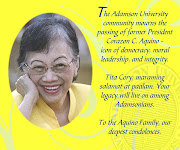Political Law: Constitutional Law 2
Is the President’s power to call out the armed forces as their Commander-in-Chief in order to prevent or suppress lawless violence, invasion or rebellion subject to judicial review, or is it a political question?
Held: When the President calls the armed forces to prevent or suppress lawless violence, invasion or rebellion, he necessarily exercises a discretionary power solely vested in his wisdom. This is clear from the intent of the framers and from the text of the Constitution itself. The Court, thus, cannot be called upon to overrule the President's wisdom or substitute its own. However, this does not prevent an examination of whether such power was exercised within permissible constitutional limits or whether it was exercised in a manner constituting grave abuse of discretion. In view of the constitutional intent to give the President full discretionary power to determine the necessity of calling out the armed forces, it is incumbent upon the petitioner to show that the President's decision is totally bereft of factual basis. The present petition fails to discharge such heavy burden as there is no evidence to support the assertion that there exists no justification for calling out the armed forces. There is, likewise, no evidence to support the proposition that grave abuse was committed because the power to call was exercised in such a manner as to violate the constitutional provision on civilian supremacy over the military. In the performance of this Court's duty of “purposeful hesitation” before declaring an act of another branch as unconstitutional, only where such grave abuse of discretion is clearly shown shall the Court interfere with the President's judgment. To doubt is to sustain. (Integrated Bar of the Philippines v. Hon. Ronaldo B. Zamora, G.R. No. 141284, Aug. 15, 2000, En Banc [Kapunan]) from the notes of Atty. Edwin Sandoval
Tuesday, June 16, 2009
Subscribe to:
Post Comments (Atom)



No comments:
Post a Comment